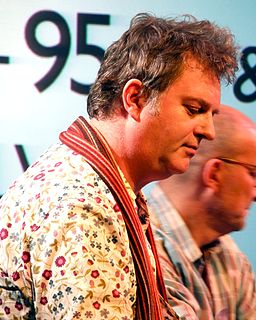A Quote by Ernesto Cardenal
I speak of the current civilization and I consider her not as a symbol but as victim-victim, really, of the commercialization, of the falsification of this real world. That is my theme.
Related Quotes
Being a victim doesn't take much. There are built-in excuses for failure. Built-in excuses for being miserable. Built-in excuses for being angry all the time. No reason to trying to be happy; it's not possible. You're a victim. Victim of what? Well, you're a victim of derision. Well, you're a victim of America. You're a victim of America's past, or you're a victim of religion. You're a victim of bigotry, of homophobia, whatever. You're a victim of something. The Democrats got one for you. If you want to be a victim, call 'em up.
When you're a victim, you automatically have a built-in excuse for failure. When you are a victim, it's always somebody else's fault. When you're a victim, success is not possible. When you are a victim of something, you are acknowledging that you are as far as you're gonna get, and you can't get any further, because there are more powerful forces arrayed against you than the force of yourself against it.
To answer oppression with appropriate resistance requires knowledge of two kinds: in the first place, self-knowledge by the victim, which means awareness that oppression exists, an awareness that the victim has fallen from a great height of glory or promise into the present depths; secondly, the victim must know who the enemy is. He must know his oppressor's real name, not an alias, a pseudonym, or a nom de plume!
The main difference is, in 'Cold Case,' the victim sometimes had been dead for decades - you didn't have the advantage of being able to interview the victim. You had to piece together the circumstances surrounding the crime from witnesses and other evidence. 'SVU' is much more immediate in that you can talk to the victim.
While it is tempting to believe that you are the victim of certain people or forces beyond your control, A Course in Miracles teaches you to recognize that you are not a victim. Through the grace of God, you are lifted above and beyond any forces-internal or external-that threaten to limit you. Knowing you're not a victim is a major form of personal empowerment.





































